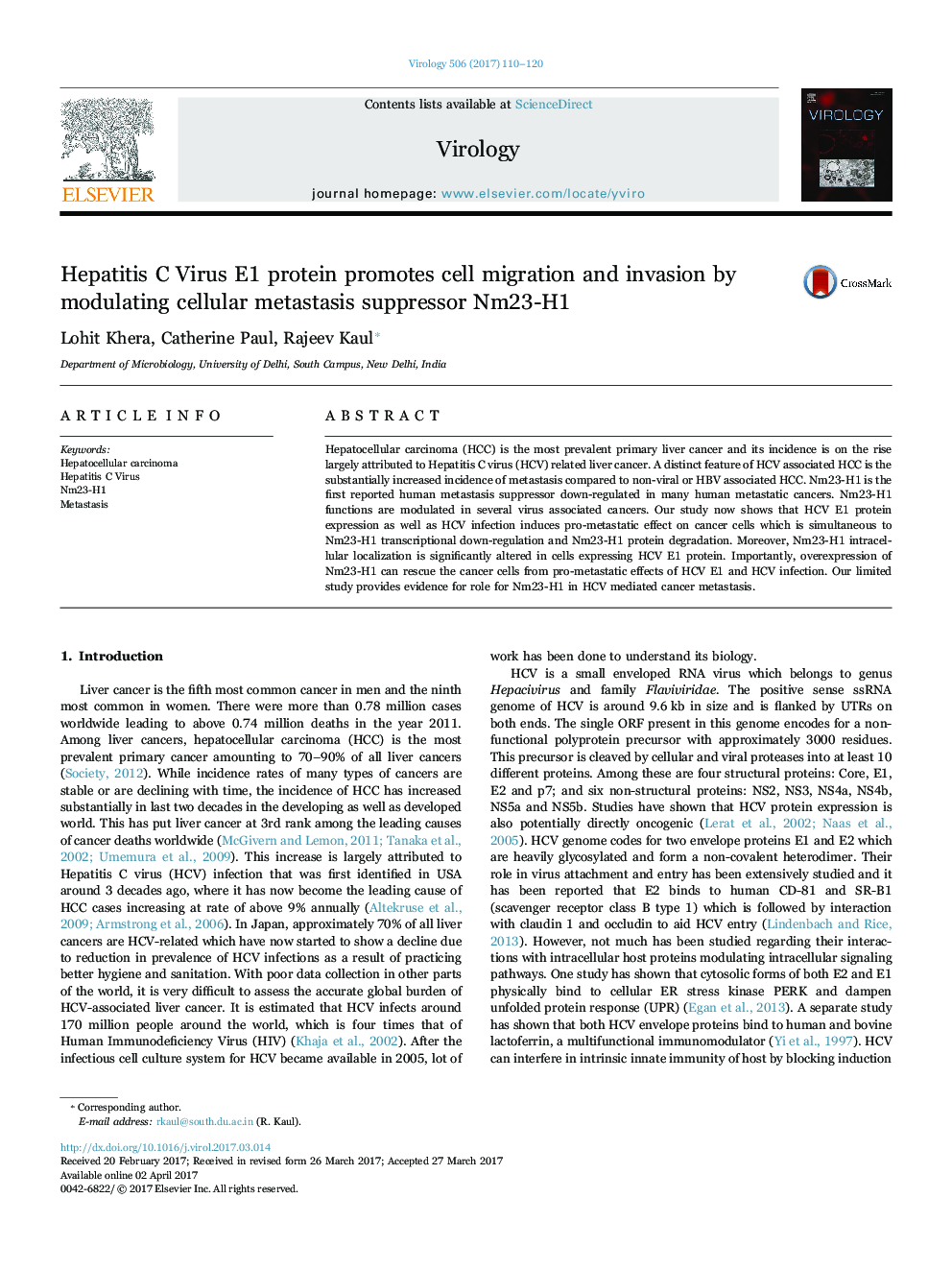| Article ID | Journal | Published Year | Pages | File Type |
|---|---|---|---|---|
| 5675114 | Virology | 2017 | 11 Pages |
â¢A distinct feature of HCV associated HCC is increased incidence of metastasis.â¢HCV E1 protein induces pro-metastatic effect on cancer cells.â¢Cellular metastasis suppressor Nm23-H1 plays critical role.â¢Our study provides evidence for role for Nm23-H1 in HCV mediated cancer metastasis.
Hepatocellular carcinoma (HCC) is the most prevalent primary liver cancer and its incidence is on the rise largely attributed to Hepatitis C virus (HCV) related liver cancer. A distinct feature of HCV associated HCC is the substantially increased incidence of metastasis compared to non-viral or HBV associated HCC. Nm23-H1 is the first reported human metastasis suppressor down-regulated in many human metastatic cancers. Nm23-H1 functions are modulated in several virus associated cancers. Our study now shows that HCV E1 protein expression as well as HCV infection induces pro-metastatic effect on cancer cells which is simultaneous to Nm23-H1 transcriptional down-regulation and Nm23-H1 protein degradation. Moreover, Nm23-H1 intracellular localization is significantly altered in cells expressing HCV E1 protein. Importantly, overexpression of Nm23-H1 can rescue the cancer cells from pro-metastatic effects of HCV E1 and HCV infection. Our limited study provides evidence for role for Nm23-H1 in HCV mediated cancer metastasis.
